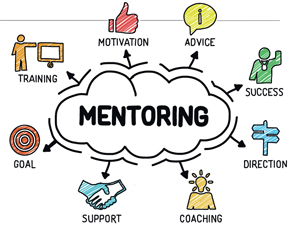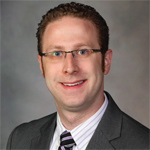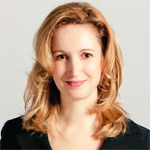
garagestock/shutterstock.com
Medicine has traditionally been an apprenticeship model. The most elemental and constructive method of passing on knowledge is the mentor–mentee relational experience. Mentorship encompasses not only the role of teacher, but also that of coach, role model, advisor and confidante.
Matthew J. Koster, MD, rheumatology fellow and instructor in medicine, Mayo Clinic, Rochester, Minn., can attest to the value of being mentored. “Having a mentor is a vital component of any physician’s mental growth and well-being,” he says. “At every level of my training in medicine, I have sought out mentors, because they are an essential part of my learning and growing process.”
Andreea Bujor, MD, a first-year rheumatology fellow at Boston University Medical Campus in Massachusetts, says, “The younger generation is in great need of good role models and leaders that they believe in and want to follow. Mentors shape our personality, and help us define our goals and achieve them.”

Dr. Koster
As a rheumatology fellow at Stanford University in Palo Alto, Calif., Matthew Baker, MD, says he was prompted to seek out a mentor when he was afforded opportunities in basic science, clinical trials, advanced degrees and industry collaborations. “Navigating these experiences and ultimately choosing the best path forward was challenging, and it was vital to gain insights from others who have traveled the same path,” he says.
Mentors reap rewards from the partnership as well. Kenneth J. Warrington, MD, chair, Division of Rheumatology, rheumatologist and professor of medicine, Mayo Clinic, Rochester, Minn., learns from his students and finds that he is able to accomplish more, because mentees are willing to devote significant time to assisting him with research projects. He also finds satisfaction in helping fellows reach their potential.
Making a Match

Dr. Bujor
The first step in finding a mentor is personal reflection and understanding yourself. “Identifying what is professionally important, determining clinical and research interests and setting short- and long-term goals are valuable guides,” Dr. Koster says. Then seek out a mentor who shares your interests and can help you achieve your goals. Former and current trainees or your program director can provide insight into who has a proven track record with prior mentees and who may be interested in taking on new mentees.
The next step is to meet with potential candidates. “Be prepared to discuss the interests and skills you want to develop or tasks you want to accomplish,” Dr. Koster says. “This helps the potential mentor determine if they are indeed the person who can help you reach your objectives. If they are not, perhaps they could recommend someone else.”


